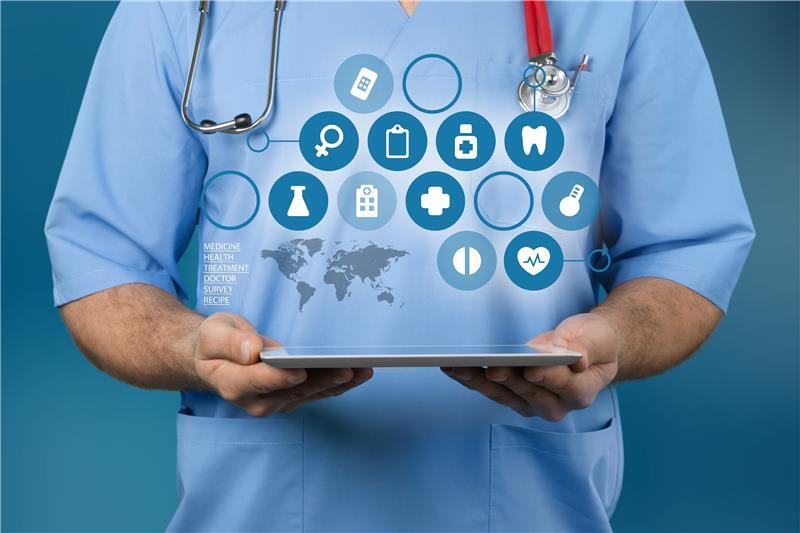In the dynamic realm of healthcare, staying informed about technological advancements is crucial for professionals dedicated to delivering exceptional patient care. As we navigate through 2025, several innovative medical technologies are transforming the industry. This article explores seven key trends that are reshaping healthcare delivery and enhancing patient outcomes.
1. Artificial Intelligence Enhancing Clinical Decision-Making
Artificial Intelligence (AI) has become a cornerstone in modern healthcare. In 2025, AI’s integration into diagnostics and treatment planning has reached new heights. Machine learning algorithms analyze extensive datasets to assist clinicians in early disease detection, particularly in radiology and pathology. For instance, AI systems now accurately identify early signs of diseases in imaging studies, facilitating prompt interventions.
Beyond diagnostics, AI streamlines administrative workflows, managing patient records, optimizing appointment scheduling, and enhancing billing processes. This efficiency allows healthcare providers to allocate more time to direct patient care, improving overall service delivery.
2. Personalized Medicine Tailored to Individual Needs
The era of one-size-fits-all treatment is giving way to personalized medicine, tailored to individual genetic profiles. Advancements in genomic sequencing enable healthcare professionals to design treatment plans based on a patient’s unique DNA, lifestyle, and environmental factors. This approach enhances therapeutic efficacy and minimizes adverse effects.
Technologies like CRISPR gene editing have matured, offering potential solutions for genetic disorders by correcting mutations at the DNA level. Such innovations herald a new chapter in disease management and prevention.
3. Data-Driven Insights for Proactive Care
Healthcare generates vast amounts of data daily. In 2025, the emphasis is on harnessing this data to inform clinical decisions and policy formulation. Advanced analytics platforms process patient information to predict disease trends, allocate resources efficiently, and personalize treatment protocols.
Predictive analytics play a pivotal role in anticipating patient needs, enabling preemptive interventions, and reducing hospital readmissions. This data-centric approach fosters a proactive healthcare environment, enhancing patient outcomes.
4. Innovative Blood Testing Methods
Traditional blood testing methods are being supplanted by innovative techniques that are less invasive and more efficient. Microfluidic devices now allow multiple assays to be conducted on a single drop of blood, expediting diagnostics and reducing patient discomfort.
Point-of-care testing has become more prevalent, enabling immediate results in various settings, from clinics to remote locations. This accessibility ensures timely diagnosis and treatment, crucial for conditions requiring urgent attention.
5. Virtual Health Assistants for Continuous Support
The integration of AI-driven virtual health assistants has transformed patient engagement. These platforms provide round-the-clock support, offering medical information, symptom triage, and appointment scheduling. They empower patients to manage their health proactively and alleviate the burden on healthcare facilities.
For healthcare providers, virtual assistants enhance patient communication, ensure adherence to treatment plans through reminders, and gather patient feedback, contributing to continuous care improvement.
6. Expansion of Telemedicine Services
Telemedicine has evolved from a supplementary service to a cornerstone of healthcare delivery. In 2025, virtual consultations are standard practice, offering patients convenience and broadening access to specialists, particularly in underserved regions.
The integration of telehealth platforms with electronic health records ensures continuity of care, allowing healthcare professionals to monitor patient progress remotely and adjust treatments as necessary.
7. Wearable Technology and IoT in Health Monitoring
Wearable devices have advanced beyond fitness tracking to become vital tools in health monitoring. Equipped with sensors, these devices continuously collect data on vital signs, activity levels, and even biochemical markers.
The Internet of Things (IoT) connects these devices to healthcare systems, facilitating real-time monitoring and early detection of anomalies. This connectivity enables timely medical interventions, improving patient outcomes and fostering a preventive care model.
Embracing the Future of Healthcare
The technological innovations of 2025 are not merely trends but fundamental shifts that enhance patient care and operational efficiency. Healthcare professionals who adapt to these advancements position themselves at the forefront of a transformative era in medicine.
If you’re a healthcare professional eager to engage with these cutting-edge technologies and elevate your career, explore the diverse opportunities available with LinkStaff. Join us in shaping the future of healthcare.
Apply Now to be part of this exciting journey toward innovative and patient-centered care.






